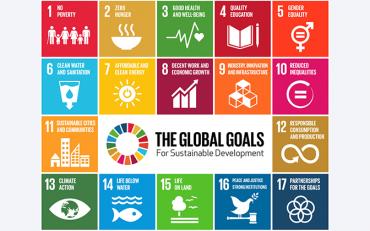<< Back to Disability Data Advocacy Group
UN Women and UN Statistics Division organized a global conference “Counted & Visible” on the measurement of gender and intersecting inequalities from 26-27 February at the UN Headquarters. The event took place on the margins of the 51st session of the UN Statistical Commission taking place next week, but with a particular focus on intersectionality that is increasingly important in global processes, as well as data collection. Disability was highlighted throughout the event as a key area in which to focus truly indicating how far we’ve come to increase the visibility of disability data at the global level.
In the opening session both Papa Seck, Chief Statistician, UN Women and Stefan Schweinfest, Director, UNSD included disability data as important to include in measuring the SDGs. Additional references include:
- Patrik Andersson of UNESCAP stated that disability data are now being collecting in the Asia-Pacific region using the Washington Group questions and that this has been very helpful.
- Ola Awad, President of Palestine Central Bureau of Statistics shared that the unemployment rate for women with disabilities is the highest of any group in the State of Palestine. According to census data in 2017, approximately 72% of women with disabilities in the age range of 15-29 were unemployed compared to 62% of women without disabilities. In the Gaza Strip, 90% of young women with disabilities were not in the labor force versus 84% of women without disabilities.
- Fridah Githuku, Executive Director, GROOTS in Kenya highlighted that disability data must be collected to ensure no one is left behind
- Neda Jafar, Head of Statistics Policy and Coordination Unit, UN ESCWA, discussed the work that ESCWA has done on disability data in the region.
A session was dedicated to data with a focus on women with disabilities in which presentations were from Chile, Senegal, ESCWA, UNICEF, and CBM and the Stakeholder Group of Persons with Disabilities. Dr. Elizabeth Lockwood presented from the civil society perspective on data on women and girls with disabilities, particularly looking at citizen-gathered disability data with three examples from the local level. The three examples included:
- The LNOB Partnership hosted by the International Civil Society Centre that focuses on citizen-gathered data on the most marginalized communities, including persons and women with disabilities to create inclusive SDG implementation. Data have been gathered so far in Bangladesh, Kenya, India, Nepal, and Vietnam.
- The SHOMOTA Project in Bangladesh, a World Vision project, funded by the Australian Government through the Water for Women Fund incorporates water, sanitation and hygiene (WASH), empowerment of women and people with disabilities, and engagement with government and the private sector. The project’s primary goal is to improve gender and disability inclusive WASH in schools and communities. The Project partners with disability-focused organizations and a national DPO representing women with disabilities in Bangladesh, with CBM Australia to support disability inclusion, and CARE Australia to support gender transformation.
- Through the Disability Data Advocacy Working Group under the Stakeholder Group of Persons with Disabilities various examples of non-traditional data have been shared. One example came from the European Union of the Deaf that gathered information and challenges regarding the collection of data of deaf women in Europe from 31 National Associations of the Deaf.
Concluding recommendations:
- Citizen-driven disability data needs to be recognized and utilized by National Statistical Offices to fill data gaps in SDG monitoring for women and girls with disabilities. In addition, local authorities need to be partners in the data collection process and informed by the data.
- Statisticians, policymakers, organizations of persons with disabilities, and allies need to learn from each other and use available data to address challenges and gaps in policies to realize international commitments for women and girls with disabilities.
- The Washington Group short set of questions and UNICEF/Washington Group Child Functioning Module should be used to disaggregate disability and monitor progress in attaining the SDGs.
- Disability data advocacy efforts led by the disability movement should be strengthened and increased and relevant tools for DPOs developed and shared.

